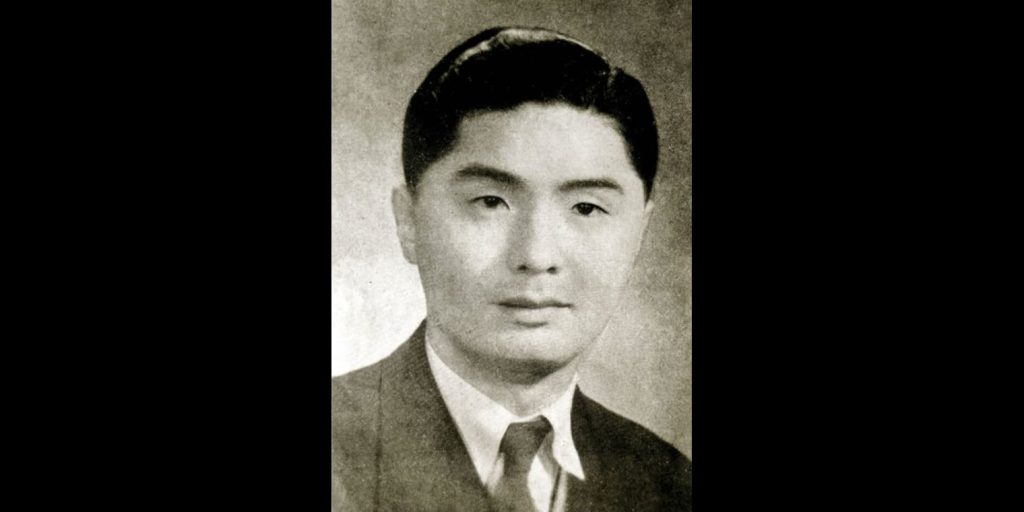In Netflix’s thriller drama ‘Hijack ’93,’ a spotlight is shone on the true events of October 25, 1993, when a Nigerian Airways flight was hijacked by a group of teenagers while flying from Lagos to Abuja. The movie details the harrowing encounters faced by the passengers and flight crew over the course of the hijacking and how it was eventually resolved. However, an intriguing subplot forms around a particular passenger on the flight, specifically a man named Lee Zhang, who is said to be the son of a Chinese ambassador. It creates a whole host of issues for the military as they try to find a method to end the hijackers’ ploy without triggering a political landmine further down the line.
Lee Zhang is a Fictional Counterpart to a Real Chinese Diplomat on the Hijacked Plane
Lee Zhang in ‘Hijack ’93’ is a fictional creation of Musa Jeffery David, who wrote the script for the movie. He is described as the young son of a wealthy Chinese ambassador, who happens to be traveling on the same flight as the hijackers. However, in the real version of events, no one named Lee Zhang was on the flight to Abuja from Lagos. Instead, the character is likely a stand-in for a real Chinese diplomat named Rong Yiren, who was caught up in the affairs of the hijacking and subsequently freed like the rest of the passengers and crew members. Yiren was the vice president of China and a senior member of the government, unlike his fictional counterpart, Zhang, who is just a figurehead for a foreign power that the army does not wish to harm while trying to stop the hijackers.

For the uninitiated, Rong Yiren was an influential figure in the People’s Republic of China who was pivotal in opening trade between the Western world and China. Although most of his family’s wealth was acquired before the Chinese Communist Party’s rise, Yiren was allowed to thrive in the country for several years, owing to his constant and valuable support to the government. It made him one of the few openly capitalist citizens allowed to function in an otherwise communist country. However, his status fell into jeopardy in 1956 when all private businesses were dissolved into state-run enterprises. Still, he remained tied to China’s various political exchanges throughout the years, even setting up the state-owned investment firm CITIC in 1978. More than a decade later, in 1993, Yiren was appointed vice president of China.
During the hijacking of Nigerian Airways Airbus A310 in 1993, Rong Yiren was one of many hostages who was captured by the four abductors, Richard Ogunderu, Kabir Adenuga, Benneth Oluwadaisi, and Kenny Rasaq-Lawal, when they commandeered the plane to an airport in Niamey, Niger Republic. While stationed at the airport, the hijackers negotiated with the gathered army to have their demands heard. However, as part of the talks, several passengers were released, including Nigerian government officials and, notably, Rong Yiren. The hijackers still retained a considerable number of hostages to ensure they still had some leverage with further negotiations. Ultimately, their stint came to an end on October 28, 1993, when the gendarmes stormed the plane and captured the kidnappers.
Rong Yiren Remained Active in His Political Role and Passed Away Nearly a Decade Later
Rong Yiren occupied the role of vice president for around five years until he retired in 1998. Although viewed as a ceremonial post in most countries, Yiren had other avenues through which his legacy would be forever rooted in China’s growth in the future. His state-owned investment company, CITIC, was a pivotal part of his great accomplishments alongside his personal affairs. The former vice president had fathered four children with his wife, Yang Jianqing, who he had married in 1937. Yiren was considered one of the richest people in Asia owing to his vast family fortune. However, in October 2005, he passed away as a victim of pneumonia at the age of 89. He was survived by his wife and his children, of whom businessman Larry Yung continued honoring his legacy by becoming the chairman of CITIC.
Although he was considered a capitalist who lived in communist-era China, following his death, Rong Yiren revealed that he had shifted his allegiances to the Chinese Communist Party in 1985. Under his express wishes, the information was not revealed until his passing. His funeral took place a few days later, in November 2005. Seven years later, his wife would join his side by being buried next to him after she passed away due to an illness on January 8, 2014. Meanwhile, Larry Yung continued as chairman of the company his father established, CITIC, until he suffered a significant financial loss that engulfed the whole venture and his own reputation in controversy. Subsequently, he stepped down from his role on April 8, 2009.
Read More: Hijack ’93: Is Captain Ambrose Based on a Real Nigerian Airways Pilot?


You must be logged in to post a comment.